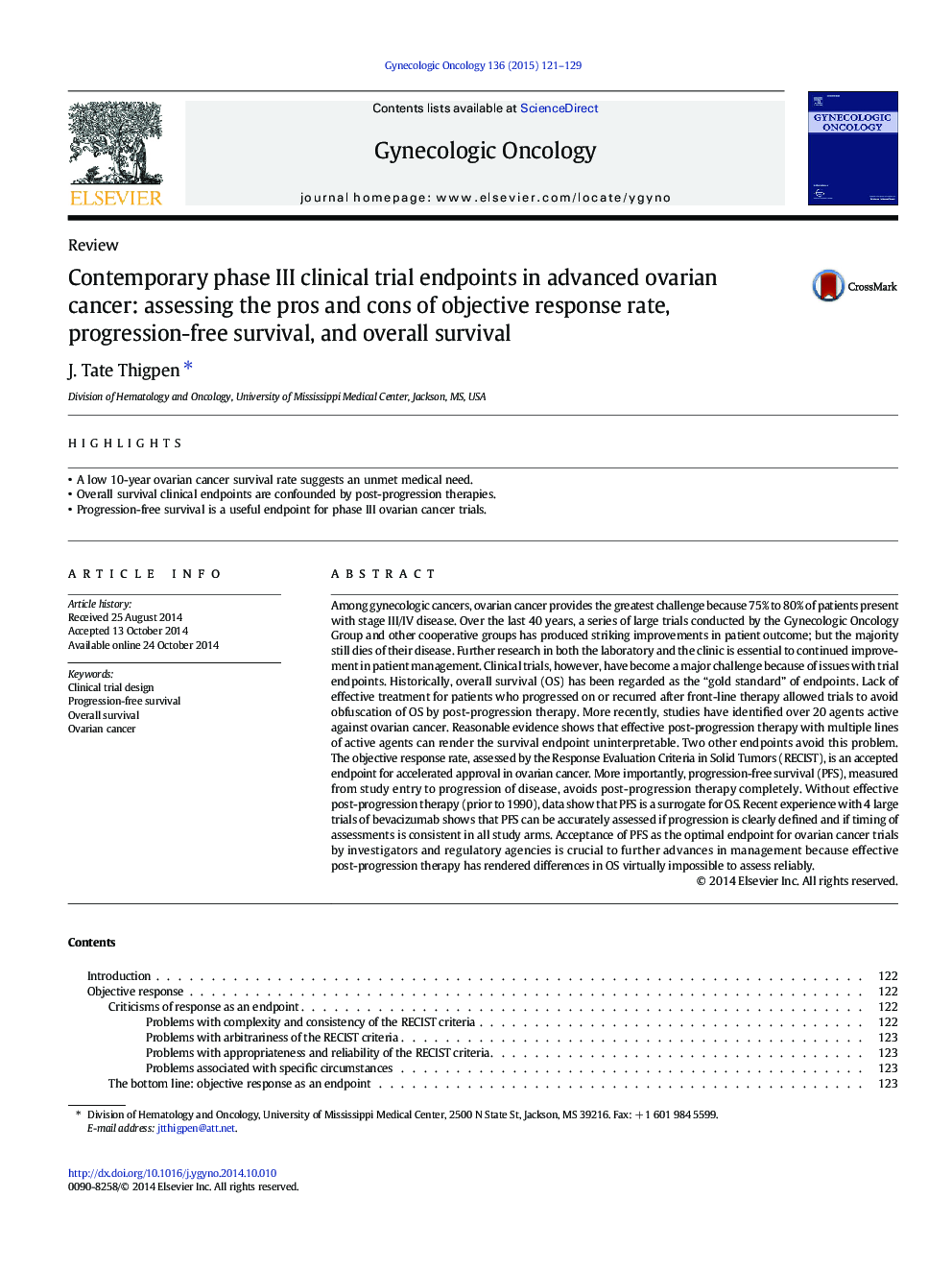| کد مقاله | کد نشریه | سال انتشار | مقاله انگلیسی | نسخه تمام متن |
|---|---|---|---|---|
| 6183248 | 1254095 | 2015 | 9 صفحه PDF | دانلود رایگان |
- A low 10-year ovarian cancer survival rate suggests an unmet medical need.
- Overall survival clinical endpoints are confounded by post-progression therapies.
- Progression-free survival is a useful endpoint for phase III ovarian cancer trials.
Among gynecologic cancers, ovarian cancer provides the greatest challenge because 75% to 80% of patients present with stage III/IV disease. Over the last 40Â years, a series of large trials conducted by the Gynecologic Oncology Group and other cooperative groups has produced striking improvements in patient outcome; but the majority still dies of their disease. Further research in both the laboratory and the clinic is essential to continued improvement in patient management. Clinical trials, however, have become a major challenge because of issues with trial endpoints. Historically, overall survival (OS) has been regarded as the “gold standard” of endpoints. Lack of effective treatment for patients who progressed on or recurred after front-line therapy allowed trials to avoid obfuscation of OS by post-progression therapy. More recently, studies have identified over 20 agents active against ovarian cancer. Reasonable evidence shows that effective post-progression therapy with multiple lines of active agents can render the survival endpoint uninterpretable. Two other endpoints avoid this problem. The objective response rate, assessed by the Response Evaluation Criteria in Solid Tumors (RECIST), is an accepted endpoint for accelerated approval in ovarian cancer. More importantly, progression-free survival (PFS), measured from study entry to progression of disease, avoids post-progression therapy completely. Without effective post-progression therapy (prior to 1990), data show that PFS is a surrogate for OS. Recent experience with 4 large trials of bevacizumab shows that PFS can be accurately assessed if progression is clearly defined and if timing of assessments is consistent in all study arms. Acceptance of PFS as the optimal endpoint for ovarian cancer trials by investigators and regulatory agencies is crucial to further advances in management because effective post-progression therapy has rendered differences in OS virtually impossible to assess reliably.
Journal: Gynecologic Oncology - Volume 136, Issue 1, January 2015, Pages 121-129
